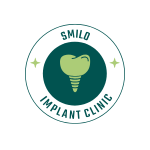healthcare

May 26,2025 • 6 min read
Wisdom Tooth Removal: A Guide For Chatham Residents

Residents
Wisdom teeth, or third molars, are the final set of teeth to emerge, typically between the ages of 17 and 25. While some individuals experience no issues with their wisdom teeth, many encounter complications that necessitate removal. Common reasons for extraction include impaction, where the tooth doesn't fully emerge; crowding, leading to misalignment of other teeth; increased risk of decay and gum disease due to their hard-to-reach location; and the development of cysts or tumours that can damage the jawbone and surrounding structures. Understanding these potential issues underscores the importance of regular dental check-ups and timely intervention when problems with wisdom teeth are identified.
Why Wisdom Teeth Are Removed
Common Reasons for Extraction
Impaction:
Impacted wisdom teeth occur when these third molars lack sufficient space to emerge or develop normally. This can lead to them being trapped within the jawbone or gums, causing pain, swelling, and potential damage to adjacent teeth. Impacted teeth are also more susceptible to infection and can contribute to the development of cysts or tumours. According to the Cleveland Clinic, impacted wisdom teeth are extremely common and can lead to various oral health issues if not addressed.
Crowding:
The eruption of wisdom teeth can exert pressure on existing teeth, leading to crowding and misalignment. Individuals who have invested in dental treatments like dental implants Chatham may be particularly concerned, as the shifting caused by wisdom teeth could compromise previous dental work. While some studies suggest that wisdom teeth may not significantly impact anterior teeth alignment, the risk of dental crowding remains a common reason for extraction.
Decay or Gum Disease:
Due to their position at the back of the mouth, wisdom teeth are difficult to clean properly. This can make them a hotspot for plaque accumulation, leading to cavities and gum disease. Food debris and bacteria easily get trapped, increasing the likelihood of infections that affect the wisdom teeth and threaten the health of neighbouring dental implants Chatham patients might have.
Cysts or Tumours:
In rare cases, impacted wisdom teeth can develop cysts — fluid-filled sacs that can harm the jawbone, nerves, and adjacent teeth. These cysts may grow and even transform into tumours if left untreated, though malignancy is rare. Prompt wisdom tooth removal prevents such serious complications, preserving the integrity of surrounding structures.
The Extraction Process
Understanding what to expect during the extraction can ease anxiety and ensure a smoother experience.
Pre-Procedure Assessment
Before proceeding, your dentist will carry out a detailed assessment. This often involves X-rays to determine the exact position of the wisdom teeth and plan the extraction. Identifying proximity to nerves or sinus cavities helps reduce risks.
The Procedure
The extraction is typically performed under local anaesthesia, sedation, or general anaesthesia, depending on case complexity. The oral surgeon or dentist will make a small incision in the gum to access the tooth, possibly removing some bone around it. Once the tooth is extracted, the site is cleaned, and stitches are placed if necessary to promote healing.
Patients with existing dental implants Chatham should ensure their dental team is fully aware, as careful handling is crucial to avoid impacting these structures.
Recovery and Aftercare
Post-extraction care is critical for a smooth recovery and to avoid complications.
Managing Pain and Swelling
It is normal to experience discomfort and swelling for a few days following the procedure. Using prescribed or over-the-counter painkillers like ibuprofen can significantly alleviate symptoms. Applying ice packs to the cheek intermittently can further reduce swelling.
Diet and Hydration
Stick to soft foods such as mashed potatoes, yoghurt, scrambled eggs, and smoothies. Avoid hot, spicy, or crunchy foods initially. It's also vital not to use a straw, as the sucking action can dislodge the crucial blood clot, leading to dry socket.
Oral Hygiene
Good oral hygiene is essential but must be approached gently. After 24 hours, rinse your mouth carefully with warm salt water after meals to keep the extraction site clean. Continue to brush your teeth, but avoid the extraction area directly for the first few days.
Rest and Activity
Rest is vital for proper healing. Avoid strenuous activities for at least a week post-extraction to minimise bleeding and swelling. This is particularly important for patients who might also be undergoing other treatments such as Invisalign Chatham, where mouth movements can already be sensitive.
Potential Complications
While wisdom tooth removal is a routine procedure, understanding potential complications can help patients respond swiftly if issues arise.
Dry Socket
Dry socket is a painful condition where the protective blood clot is lost too early. It can leave nerves exposed and delay healing. Symptoms include intense pain radiating to the ear, foul taste, and visible bone in the socket. Preventative measures include avoiding smoking, spitting, and drinking through straws.
Infection
Though rare, infections can occur if bacteria enter the surgical site. Signs include persistent swelling, fever, pus discharge, or an unpleasant taste in the mouth. Prompt dental attention is essential if any of these symptoms arise.
Alternatives and Additional Dental Solutions
Wisdom tooth extraction can sometimes lead to a need for further dental treatments, especially if adjacent teeth are affected.
Dental Implants
When significant gaps develop after complicated extractions, dental implants Chatham provide a reliable, natural-looking replacement. These titanium posts are surgically implanted into the jawbone, supporting crowns or bridges and restoring full dental function.
Invisalign
Concerns about teeth shifting post-extraction are valid. Invisalign Chatham offers an excellent solution for maintaining or improving alignment discreetly. Clear aligners are custom-made, comfortable, and removable, making them an attractive choice for adults wanting minimal disruption to their daily lives.
For patients who have had wisdom teeth removed and want to preserve their smile alignment, starting an Invisalign Chatham treatment plan can be an excellent next step. Regular monitoring by a qualified dentist will ensure your dental health remains on track.
Conclusion
Wisdom tooth removal is a common yet crucial dental procedure that helps prevent numerous oral health complications. With the right preparation and care, recovery can be smooth and straightforward. For residents looking for expert care in wisdom tooth removal or considering options like dental implants or Invisalign, Smilo Dental Implants Group offers compassionate, comprehensive services designed to support every step of your dental journey.
Dental Appointment Details
User Profile
- Full name
- Dental Appointment
- Email address
- dentalappointment4@gmail.com
- Join Date
- 2025-05-13
- State
- City
- Pincode
- Address
- Follow us on Facebook
- Follow us on Twitter
- Website Name
- Bio